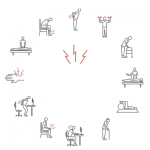“For people living with chronic musculoskeletal pain, like arthritis, the patients in this study are saying that increasing opioid pain medicines is not likely to reduce the pain or improve function,” Dr. Edwards says.
“For that,” he concludes, “we need to look for other kinds of treatments, be they physical or psychological therapies, or other types of medicines not studied here.”
ad goes here:advert-1
ADVERTISEMENT
SCROLL TO CONTINUE
Reference
- Morasco BJ, Smith N, Dobscha SK, et al. Outcomes of prescription opioid dose escalation for chronic pain: Results from a prospective cohort study. Pain. 2020 Jan 24. [Epub ahead of print]


